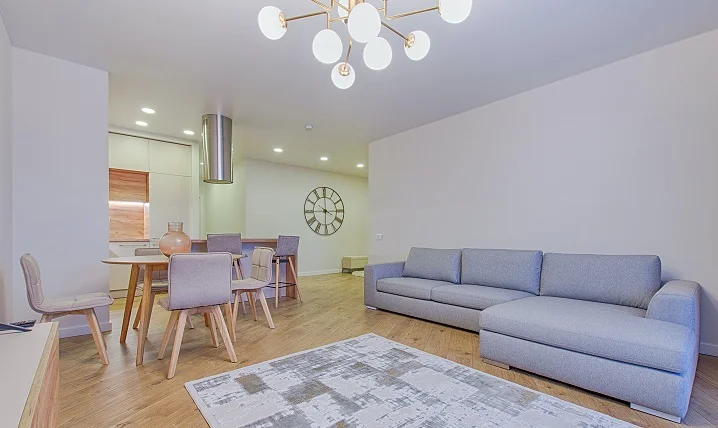Drug & Alcohol Rehab Cheshire & Near Cheshire
Quick Links for help with addiction in Cheshire and near Cheshire
- What Is The Admissions Process Like at Rehab in Cheshire?
- Rehab for Drugs in Cheshire (Cocaine, Cannabis, Heroin, Benzodiazepines etc.)
- What Therapies Are Used at Drug and Alcohol Rehab in Cheshire?
- How Long Does Drug & Alcohol Rehab in Cheshire Last?
- How Much Does a Private Rehab in Cheshire Cost?
Are you seeking professional drug or alcohol treatment in Cheshire or near Cheshire? Are you not sure where to turn?
If so, contact Rehab Recovery today. When you contact us, we conduct a quick assessment. Based on the information we collect during this assessment, we present you with a number of professional addiction treatment options in Cheshire or near Cheshire that we feel the best match your needs.
The UK not only faces many drug and alcohol issues but it struggles to overcome their effects.
Nationally, it is estimated that around 70% of nighttime admissions into A&E are due to alcohol-related incidents, as are 40% of daytime admissions.

Furthermore, the UK sees that a third of its fatal fires are related to alcohol, and 10% of deaths are related to alcohol. 30% of domestic abuse cases involve alcohol consumption as does 74% of child maltreatment incidents.
Clearly, addiction isn’t something that affects its primary victim only. It has intense ramifications on their family’s emotional wellbeing, finances, and sociability. The indirect effects of addiction in the UK can be as devastating as its direct effects.
In the UK, around 18% of adults entering treatment are parents who are living with children, whereas around 36% are parents who are not living with children. Ultimately, addiction presents many problems for families in UK communities.
Cheshire is no exception to the UK’s struggle with drug and alcohol problems. 2019-2020 saw 760 admissions into rehab in Chester and Cheshire West, with 17% of these patients being parents living with children.
Below, we provide some statistics about alcohol and drug use in Cheshire:
| Drug and Alcohol Statistics in Cheshire | Data |
| Admissions into rehab in Chester and Cheshire West 2019-2020 | 760 |
| Number of patients being parents living with children | 17% |
| People admitted to hospital with alcohol-specific conditions in 2020/21 | 2,125 |
| Deaths related to alcohol in Cheshire West and Chester in 2020 | 132 |
To combat addiction, we need to help those who need support to seek treatment through drug and alcohol rehab in Cheshire.
Here, they can recover and educate themselves as well as others about the lasting consequences caused by addiction.
We operate throughout Cheshire, and specialists are able to assist you across the County of Cheshire in Altrincham, Chester, Warrington, Crewe, Macclesfield, Knutsford, Nantwich, Northwich, Alderley Edge, Congleton, Ellesmere Port, Warrington, Wilmslow, Runcorn, Frodsham, Tarporley, Sandbach, Winsford, Widnes and Lymm.
Get the help you need from a drug and alcohol rehab Cheshire by calling us today on 0800 088 66 86
What is Addiction? – A Brain Disease

It is important to understand that addiction is a chronic brain disease. This is contrary to a popular yet harmful stigma that addiction is caused due to a lack of discipline or poor lifestyle choices.
The idea that addiction is a lifestyle is detrimental to the way people approach it. It prevents subjects from seeking support because of the social ramifications it may bring if others perceive their addiction merely as poor habits.
Instead, addiction is classified as a brain disease of reward and chronic relapsing. When someone is suffering from addiction, their reward pathways will have been altered, making them intensely desire and become dependent on this substance.
It is also a spectrum, and each case of addiction is unique. One person may succumb to addiction due to their genetics, whereas others may become dependent due to trauma or environmental factors.
You can read more about the disease of addiction here.
Beat the disease of addiction with the help of a drug and alcohol rehab Cheshire by giving us a call on 0800 088 66 86
Am I Addicted?

If you are concerned that you are or a loved one is addicted, there are ways you can be more accurate in your assessment. While it is encouraged that subjects speak to a medical professional regarding their addiction, some tests may act as a framework of reference.
A framework that is commonly used to decipher whether someone is addicted is the AUDIT or Alcohol Use Disorders Identification Test. Here, subjects can answer a series of questions regarding alcohol intake, dependency, and consequences.
There will be 10 questions for subjects to answer, and if they answer with complete sincerity, they will be assessed based on their scores. It is imperative that subjects answer honestly to ensure that they are assessed accurately.
Subjects that score more than 13 points are likely to suffer from alcohol dependence. Those who score higher than 8 should still be concerned about their alcohol consumption.
While they may not be dependent or addicted, they should consider reducing their intake.
Another way to assess whether someone is suffering from addiction or alcohol dependence is by using the DSM-IV-TR diagnostic criteria for substance dependence. This criterion will help subjects determine the scale of their dependence.
According to the DSM-IV-TR diagnostic criteria, if a subject is experiencing legal problems, social problems or denial, they are likely to be suffering from substance abuse. This is when a subject should seek the support of a drug and alcohol rehab in Cheshire.
Those who suffer from substance dependence have high tolerance levels to their substance, experience withdrawal symptoms, and their personal interests and responsibilities suffer as a result of their compulsion to intoxicate.
You can also refer to the ASAM (American Society of Addiction Medicine) Criteria, DSM-5 Guidelines, or try the CAGE Questionnaire for further help and indication that you may have an addiction.
Not sure if you need the help of an alcohol and drug rehab in Cheshire or near Cheshire? Talk it over with our expert team on 0800 088 66 86
What Are The Six Major Characteristics Of Addictive Behaviour in or near Cheshire?
Research by Daria J. Kuss and Mark D. Griffiths defines addiction as ‘neglect of personal life, mental preoccupation, escapism, mood modifying experiences, tolerance, and concealing the addictive behaviour’.
What Is The Admissions Process Like at Drug & Alcohol Rehab Cheshire?

During the consultation, the patient will have the opportunity to discuss their personal details, their requirements, and preferences when it comes to selecting a drug and alcohol rehab in Cheshire or near Cheshire.
Patients will have different requirements to one another, so it is important to consider what is necessary for them only.
If they have co-occurring disorders, or location or budgetary preferences, they should express them so that they can be accommodated accordingly.
Begin the admissions process at a drug and alcohol rehab Cheshire today by calling us on 0800 088 66 86
How Does Drug and Alcohol Rehab Cheshire Work?
Addiction is not considered a ‘choice’ or ‘moral failing’ on behalf of the addiction sufferer – so the focus of rehab is always on returning agency to the patient.
Because each case of addiction is unique, it is important for patients that their recovery programme is treated as such. At a private drug and alcohol rehab in Cheshire, patients can expect to undergo a personalised recovery programme to maximise responsiveness.
With a personalised recovery programme, patients will have each of their unique requirements met. Medical professionals will design a recovery programme that will accommodate their needs to ensure that their recovery is swift.
Instead, the rehab facility will remove the potential of relapse through abstinence. The patient will learn to live and cope without their addictive substance, and this is the most effective way to sustain a life of sobriety post-addiction.
Experts have agreed that abstinence is far more effective than harm reduction or moderation management – as a result, that’s what rehabs focus on.
When the patient first arrives at their chosen drug and alcohol rehab in Cheshire, they will undergo a medicated detox. Here, they will allow the addictive substance to withdraw from their body in a safe and comfortable environment.
Following a successful medicated detox, patients will undergo a range of therapeutic activities. This will include communicative therapy, holistic therapy, relapse prevention planning, and more.
When the patient successfully recovers, they will stay in recovery by following an aftercare plan which will help them sustain sobriety. Here, they will continue to practise sobriety and implement their relapse prevention tools.
Start your journey to recovery at a drug and alcohol rehab in Cheshire by giving our team a call on 0800 088 66 86
Rehab for Drugs in Cheshire (Cocaine, Cannabis, Heroin, Benzodiazepines etc.)

It is important to note that substances yield different effects on subjects. Because of this, the approach towards treating a particular addiction will vary from one another. No two addictions are the same, there is a myriad of factors that differentiate them.
For example, substances such as cocaine, crack cocaine and cannabis are psychologically addictive, rather than physically addictive. This means that subjects won’t experience physical withdrawal symptoms such as seizures, nausea, fatigue, and so on, and as such neither cocaine detox nor cannabis detox are ever needed.
Instead, subjects dealing with cocaine addiction or cannabis addiction will experience psychological withdrawal symptoms such as anxiety, paranoia, depression, and more. This means the detox process will be different for physically addictive substances.
Substances such as alcohol or heroin present physical withdrawal symptoms. This makes both alcohol and heroin withdrawal symptoms severe, and potentially fatal if the subject isn’t supported during their medicated alcohol detox or heroin detox.
This is why both alcohol addiction and heroin addiction are taken so seriously.
In particular, alcohol withdrawal symptoms present as both physical and psychological issues, ranging from depression and anxiety to uncontrollable shaking, alcoholic seizures and delirium tremens.
Prescription drugs are often used to counter these dangerous symptoms. Librium is perhaps the most popular prescription drug used during alcohol detox, whereas drug detox will require different medications depending on the specific substance being used. For opioid/opiate detox, you will be offered Buprenorphine/Subutex/Hydrocodone to treat opiate withdrawal symptoms. You could also be prescribed Chlordiazepoxide.
You will be asked to specify what your physically or psychologically addictive substance is, and this will be taken into account when planning your medicated detox.
Whether you need alcohol rehab, cannabis rehab, cocaine rehab, heroin rehab or any other form of drug rehab, we are here to help you.
If you have an alcohol addiction you will need to have an alcohol detox before you can begin any treatment. This means you will likely experience alcohol withdrawal symptoms.
For a physical dependence on a substance, such as alcohol, you will need a medically-assisted detox – this is underseen by a doctor or medical professional (psychiatrist). You will also need one of these for heroin withdrawal for example.
Other types of addiction that can be treated at rehab in Cheshire or near Cheshire include:
- Substance Use Disorder
- Cannabis Use Disorder
- Behavioural Addictions (Gambling Addiction)
- Binge Drinking
- Cocaine Dependence
- Codependency
- Opioid Use Disorder
- Ketamine Addiction
To get all the support you need from addiction treatment in Cheshire, call our expert team today on 0800 088 66 86
How Do You Break The Habit Of Drinking in Cheshire or near Cheshire?
A study completed by Dr Gillian W Shorter found that patients in recovery from alcoholism that were receiving the medication naltrexone were more likely to have a successful outcome.
What Therapies Are Used at Drug and Alcohol Rehab in Cheshire or Near Cheshire?

Therapy does not mean one style of recovery, instead, it incorporates a wide range of methods that help patients overcome addiction and improve their quality of life. Therapy at rehab facilities is often holistic-based and communication-based. Therapy is typically in the form of group therapy or individual therapy session.
Holistic therapy is a form of therapy that treats the patient as a whole. It is all-encompassing, rather than targeting specific symptoms that the patient may have. People who undergo holistic therapy experience reduced levels of stress and anxiety.
Holistic therapy can also mean many things, it can come in the form of art therapy, music therapy, Reiki, reflexology, drama therapy, Equine-assisted therapy, acupuncture, yoga, music therapy, nutritional counselling, meditation, mindfulness and much more. With holistic therapy, there is a form of therapy for everyone. Many of these therapies take place in group therapy sessions.
On the other hand, there is communicative therapy. Communicative therapy is more objective-based. These objectives are typical to help the patient open up, unburden themselves of intense feelings, and consolidate intrinsic motivation.
Communicative therapy can come in the form of Cognitive Behavioural Therapy (CBT) and Dialectical Behavioural Therapy (DBT). The purpose of CBT and DBT is to manifest a more constructive and rational outlook and to manage intense and negative behavioural patterns.
Support sessions are also a staple at a drug and alcohol rehab. The patients are provided with a platform to share their experiences and to inspire others. Patients are inspired by one another and can form a stronger and more extensive support network.
Support sessions can also include family therapy.
By inviting the family to communicate and learn about addiction, it can unburden the patient from feelings of guilt. Educating the family will destigmatize addiction and inform them of the best ways to support their loved ones.
Various other therapies include brief interventions, motivational interviewing, motivational enhancement therapy, acceptance and commitment therapy and many more. Most of these are available in the form of both group therapy and individual therapy.
Other types of therapy available at rehab in Cheshire include:
- Talking Therapies
- Rational Emotive Behaviour Therapy
- Contingency Management
- Equine Therapy
- Eye Movement Desensitization and Reprocessing
- Group Psychotherapy
- Person-Centered Care
- Psychiatric Treatment
Experience any and all of these excellent therapies at a rehab centre in Cheshire by calling us today on 0800 088 66 86
How Long Does Drug & Alcohol Rehab in Cheshire or Near Cheshire Last?

Image above: Therapy at a rehab in Cheshire
While no two recovery journeys are the same, rehab usually lasts around 28 days for patients. However, there are many factors that may influence the duration of undergoing recovery at a drug and alcohol rehab in Cheshire.
The medicated detox will last around 7 days, or potentially two weeks depending on addiction severity.
This will ensure that the patient has enough time to overcome withdrawal symptoms in a safe and comfortable manner under medical supervision.
The remaining time spent at rehab will be focused on taking part in therapy to optimise general well-being, and also focusing on relapse prevention planning.
When combined, the patient will become equipped to deal with challenges and potential relapse triggers.
To find out how long your stay at a drug and alcohol rehab in Cheshire is likely to last, call us on 0800 088 66 86
What If I Suffer From Another Condition?

Image above: Woman meditating on her bed at a rehab in Cheshire
If patients entering rehab suffer from an additional condition, whether mental or physical, these needs will be addressed by a private drug and alcohol rehab. A dual diagnosis (Comorbidity) will be made, and their personalised recovery programme will address these concerns.
Dual diagnostics are common among addiction patients.
A gov.uk study reported that around 60% of patients who are undergoing treatment are also suffering from a mental health condition and require treatment.
These mental health problems and psychiatric disorders can vary from anxiety and post traumatic stress disorder (PTSD) to depression, schizophrenia, eating disorders, obsessive compulsive disorder, and borderline personality disorder, whilst many other patients may suffer physically through respiratory problems, diabetes, and so on.
Whether the addiction is exacerbated by another condition or whether the condition was caused by addiction, professional support is imperative.
Trying to overcome addiction while suffering from another illness makes it incredibly difficult to reach and sustain recovery.
Many organisations across the UK offer free mental health support, whether you are also suffering from addiction or not.
Some of these include Mind UK, Young Minds, Rethink Mental Illness, Samaritans and Papyrus.
You could also reach out to Al-Anon, Alateen, and the NHS Foundation Trust for more support.
To learn more about how a drug and alcohol rehab in Cheshire will support your mental health, call our expert team today on 0800 088 66 86
What Are the Differences Between Private and Public Addiction Treatment Services in Cheshire or Near Cheshire?
When exploring the options concerning drug and alcohol rehabs, it is important to consider whether you would benefit from private or public services. Neither is inherently better, however, there are many factors that would make one more suitable for patients.
From a recovery standpoint, a private drug and alcohol rehab in Cheshire would be most optimal for patients. This is because private rehab facilities utilise personalised recovery programmes, evidence-based treatment for co-occurring disorders, accommodation, etc.
Patients will also receive swift admission into private rehabs. They will be prioritised and can undergo recovery almost immediately. With free services, they are often overworked and underfunded, meaning patients will be put on a waiting list.
It is imperative that patients undergo personalised recovery programmes if they want to maximise their chances of recovery. This is because addiction is a complex disease, and a personalised programme will address each facet of someone’s addiction.
Because of the lack of funding or resources that free services like the NHS may have, they may fail to address each patient’s needs uniquely. Instead, free services often utilise a ‘one size fits all’ method which isn’t always optimal in helping patients recover.
Additionally, patients will receive accommodation at a private rehab, this is highly beneficial because it means they can entirely focus on their recovery.
Furthermore, it removes them from social and environmental factors which can act as relapse triggers.
However, an advantage that free services have over private services is of course its budget-friendly nature. This is advantageous for those who may struggle financially, however, the cost of a private rehab will increase the chances of recovery significantly.
For help choosing between private and public rehabilitation services in Cheshire, give our team a call today on 0800 088 66 86
Are There Alternatives to Going to Rehab in Cheshire?
Professionally supported drug and alcohol rehab is one of the best ways to recover from addiction, but it isn’t for everyone.
If you think that a private drug and alcohol rehab in Cheshire is too expensive, or simply isn’t for you, there are other alternatives.
While these options may not be as effective as undergoing a personalised programme in a rehab facility, they are certainly effective for those overcoming addiction.
State-funded and NHS-run addiction treatment services in Cheshire include:
1. CAMHS Cheshire – National Health Service (England)
Address: Marsden House, Brookdale Place Chester, CH1 3DY
Telephone: 01244 393200
2. Turning Point, near Cheshire
Address:4 York Rd, Ellesmere Port CH65 0DB
Telephone: 0151 350 6500
Website: https://www.turning-point.co.uk/
3. Change Grow Live, near Cheshire
Address: 15 Delamere Street, Crewe, CW1 2HR
Telephone: 01270 656301
Website: https://www.changegrowlive.org/
4. We Are With You in Cheshire
Address: Youth Centre, Grangeway Youth & Community Centre, Grangeway, Runcorn WA7 5HA
Telephone: 01928240406
Website: https://www.wearewithyou.org.uk/
Subjects can gain access to fellowship communities and programmes to increase and consolidate their support network when recovering from addiction.
Examples of fellowship groups include Westminster Drug Project, Cheshire Wirral Partnership, Alcoholics Anonymous, Narcotics Anonymous, Cocaine Anonymous, National Association for Children of Alcoholics (Nacoa UK) and SMART Recovery. You can also find help from the National Institute for Health and Care Excellence.
Alcoholics Anonymous are one of the most prominent examples of fellowships for recoverers of addiction. Here, subjects are offered a self-supporting network, access to support sessions, and a comprehensive guide towards overcoming addiction and bad habits.
The comprehensive guide is known as the 12-step programme or 12 step facilitation therapy. It introduces healthier habits for the subjects which act as coping mechanisms. It also practises relapse prevention strategies to sustain sobriety.
Narcotics Anonymous is similarly structured to Alcoholics Anonymous, however, it focuses on those who are recovering from drug addiction as opposed to alcohol addiction. Both focus on improving the mental well-being and lifestyle of those who suffer from addiction.
Self-Management And Recovery Training, or SMART Recovery, is another fellowship group that prioritises the individual’s recovery more than anything. It encourages individuals to sustain their intrinsic motivation towards sustaining sobriety.
These are a few prominent examples, however, there are other fellowship groups all over the world. It is important to note that these examples are apolitical, nonprofit, and free from other organisations, meaning that the subject’s recovery is their priority.
Whatever help you need to beat addiction – whether from a drug and alcohol rehab in Cheshire or from one of these excellent alternative services – call us on 0800 088 66 86
Who Should Attend Drug And Alcohol Rehab in Cheshire?

While outpatient treatment is more affordable and offers convenience for those who have responsibilities at home or at work, it isn’t always a viable option. This is especially the case for those who suffer from other conditions or severe cases of addiction.
If a patient drinks over 30 units of alcohol, for example, they should not undergo treatment as an outpatient. Neither should patients who have previously failed to recover, or if they have mental or physical conditions in addition to their addiction.
Mental and physical conditions can include Wernicke Encephalopathy,anxiety, depression, bipolar disorder, hepatitis, seizures and more. A patient’s physical and mental wellbeing needs to be improved in order for their chances of recovery to be maximised.
Patients who suffer from intense drug or alcohol withdrawal symptoms, in general, should not consider a home detox or recovery. This is because they will need to be in a medically regulated environment should they experience intense withdrawal symptoms again.
Another demographic that should not undergo treatment as an outpatient are those who become aggressive as a result of alcohol or drug consumption.
Those who become erratic need to be monitored and be in a safe and comfortable environment to recover optimally.
A huge benefit of undergoing recovery as an inpatient is that patients are removed from toxic environments that may have caused or exacerbated their addiction. By being put in a new and safe environment, they can dedicate their full attention to recovering.
If you’re not sure whether a rehab in Cheshire is the right choice for you, give our team a call today on 0800 088 66 86
How Much Does a Private Rehab in Cheshire Cost?

A private drug and alcohol rehab in Cheshire will offer plenty of facilities to maximise chances of recovery. The quality of these facilities will also vary, meaning that the prices of these drug and alcohol rehabs will also vary.
High-end drug and alcohol rehab facilities can cost up to £15,000 for 28 days of treatment, whereas others may cost around £8,000.
These depend on many factors, such as the quality of training the staff have, the experience of the facility, accommodation standards, and so on.
It is important to consider the options when it comes to selecting a rehab, rather than opting for the first option that is presented.
During the pre-admission assessment, patients will state their preferences to narrow down their options in order to find a suitable place for recovery.
To discover how much your time at a drg and alcohol rehab in Cheshire is likely to cost, give our team a call today on 0800 088 66 86
How Do I Choose a Suitable Rehab in Cheshire?
There are many factors to consider that could make one rehab more suitable to a patient than another. As patients will have different preferences, there isn’t a rehab that would be objectively better than another, only one that is more suitable for someone in particular.
Patients need to consider their options and choose a rehab that makes them feel comfortable. This can be decided after the patient has communicated with staff members from various drug and alcohol rehab facilities.
It is important that the patient communicates with a member of staff at these drug and alcohol rehabs. They can gauge the atmosphere of the rehab facility and their approach to see whether they would conform to their styles and approach.
Additionally, patients should opt for a drug and alcohol rehab in Cheshire which has around a minimum of 20 years of experience. Chances of recovery will be far higher in a facility that boasts of extensive experience, high success rates, and positive reviews.
The drug and alcohol rehab in Cheshire needs to be affordable for the patient. Rehab facilities vary in their costs, and it is important that the patient does not stress over the costs and opts for one which is affordable to them.
Make sure that you end up at the perfect drug and alcohol rehab in Cheshire for your needs by calling our team today on 0800 088 66 86
How Can Rehab Recovery Help You Get Drug Addiction Treatment in Cheshire?
There exists a vast number of treatment providers for addiction in Cheshire. This presents you with a number of challenges. Firstly, you may be required to spend a substantial amount of your time researching each treatment provider.
This may be to ensure you do not select a poorly suited treatment provider. Secondly, if you do not conduct your research correctly, you may select a provider that’s not particularly suited to solving your unique problems.
When you contact Rehab Recovery, we begin by determining the particular forms of treatment we feel will result in the best possible outcome.
We gather enough information so we can match your needs to specific treatment providers in Cheshire that we feel are best suited to your needs.
Get the help you need from a drug and alcohol rehab in Cheshire by calling our team today on 0800 088 66 86
Residential and Outpatient Rehab – Which Is Better?

Once we match you up to a treatment provider in Cheshire, you must then decide on what basis you will receive your treatment. Your options include undergoing either residential or outpatient treatment.
Residential treatment requires you to live within a treatment clinic for around two to four weeks. Outpatient treatment allows you to receive treatment whilst you carry on with your normal activities such as going to work and returning home in the evening.
Residential treatment is best suited to situations where the temptation to continue alcohol or drug use is sufficiently great so that outpatient treatment is likely to result in failure.
How will you know whether to opt for residential or outpatient treatment? The answer to this question is relatively simple, although we insist on conducting an over-the-telephone assessment with you to determine the suitability of each treatment option.
Generally, if you lack family assistance or if your family enable your addiction in any way, it’s best for you to attend a residential rehab clinic.
If you’ve attempted outpatient treatment in past but failed, then you will be best advised to receive treatment on a residential basis. In fact, in the vast majority of cases, residential treatment is usually preferable to outpatient treatment alternatives.
Why? Because residential treatment means you are removed from all temptations when you receive your detoxification and rehabilitation programme.
Furthermore, residential rehab treatment is typically much more intense than outpatient treatment. For instance, during your residential treatment programme, you can expect to receive a highly structured programme of daily therapy sessions.
These sessions seek to treat the underlying emotional causes of your addiction.
Whilst outpatient treatment also seeks to treat the underlying emotional causes of addiction, it does so on a far less intense basis when compared to residential treatment.
This usually means patients receiving treatment on a residential basis are far more successful in their recovery efforts compared to those receiving treatment on an outpatient basis.
For help choosing the right addiction treatment in Cheshire for your needs, call our team today on 0800 088 66 86
What Is The Detox Process at Rehab in Cheshire Like?
When you attend a Cheshire rehab clinic, you must begin your treatment by undergoing a detox programme. Here, you will be prescribed medication aiming to reduce powerful withdrawal symptoms.
Depending on the severity of your addiction, your detox typically requires between five and fourteen days to complete.
Detoxes involving physically addictive drugs such as alcohol and heroin typically require longer detox periods compared to detoxes involving drugs that are merely psychologically addictive.
Psychologically addictive drugs include cocaine, amphetamines and cannabis.
Once your detox programme is complete, you will then be expected to attend group and individual addiction counselling sessions. These sessions make use of effective techniques such as CBT, psychotherapy and 12-step work.
Each therapy technique attempts to treat the underlying mental causes of drug and alcohol addiction.
Learn more about the detox process in Cheshire by giving our team a call today on 0800 088 66 86
Aftercare Treatment in Cheshire – What Should I Expect?
When your rehab and detox programme concludes, you will receive an aftercare plan. This plan seeks to prevent you from relapsing following the completion of your treatment.
If you seek treatment on a residential basis, you will usually be allowed to return to the rehab clinic on an outpatient basis to receive ‘top up’ therapy sessions.
If you pay for your treatment, these sessions are usually offered at no extra cost. Why? Because most rehab clinics realise the importance of aftercare in improving the effectiveness of their treatment on a long-term basis.
Since clinics are required to provide statistics on the effectiveness of their treatment, it’s in their interest to offer aftercare, given that aftercare helps to improve these statistics and support their former patients in leading healthier lives. As well as aftercare sessions, you will be encouraged to attend
Make sure that your time at a rehab in Cheshire is supported by effective aftercare services via group therapy sessions by calling us today on 0800 088 66 86
How Do I Get Help Today?
For fast access to drug and alcohol rehab in Cheshire, contact Rehab Recovery today on 0800 088 66 86. All information you supply is treated with the strictest confidence.
We supply you with the most effective treatment options in Cheshire, and we ensure your final decision is based on as much information as possible.
Every rehab in England and Wales that we work with is vetted by the Care Quality Commission.
Get help for addiction anywhere in Cheshire, including in Chester, Birkenhead, Crewe, Runcorn, Bebington, Sale, Macclesfield, Northwich, Altrincham, Wilmslow, Hyde, Winsford, Heswall, Kidsgrove, Denton and many others.


